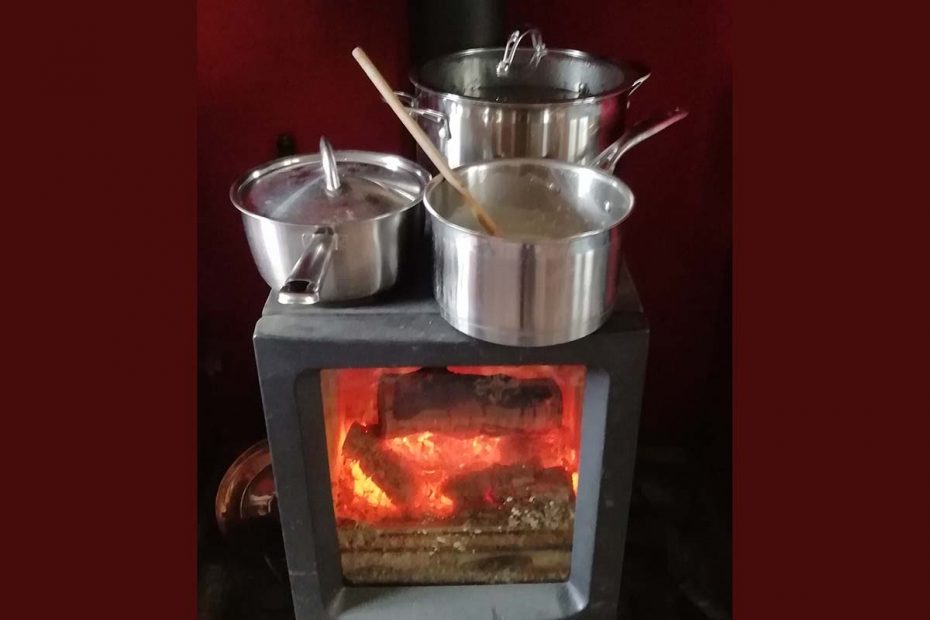Chairman's Message March 2022
It is early morning and I am sitting writing this from a candle lit room. I have just lit a wood fire so I hope to be warm in about an hour. My electricity has been off since storms Dudley and Eunice hit 5 days ago now, with destructive 100mph winds. These disruptions to modern life seem to be mounting up.
The big one was the Covid-19 Pandemic which made us change our regular social patterns; but even small events such as going for a few days without power is immediately difficult. The house stops working and one is thrown back into simpler and much slower ways of doing things, even the most simple of things takes longer.
However, some things do become much easier. The candle light quickly takes my mind to a more relaxed space. I sit quietly and muse about life when ordinarily I would be having a zoom call or engaging in another distraction of modern life.
This is like a retreat, even a solitary retreat. One starts to come to the conclusion that there is really nothing in my life that cannot wait. It might be cold here, but it will soon warm up. The water for my tea will eventually boil but when that will be is uncertain, I am dependent on the fire gods. The basic elements; earth, water, fire and air are much closer to my consciousness. I must collect wood (Earth element) to make fire, to make hot water, to be able to fill my empty cup (space element) with flavourful liquid. Now I breathe air over my hot tea and my consciousness muses again about how these elements are linked together to form my personal world.
I am lucky today to be able to see those connections, that my world is simply based on the various combinations of those elements. In Buddhism they are often referred to as the Mahābhūtas, which can also be translated as the great ghosts, the basic elements that haunt us and our world, just out of reach. We know they form our world but we do not really have a full grasp of what they are and how they form me.
I am preparing for the start of a new Wednesday evening study class at the Buddhist Centre. It focuses on a Tibetan hermit called Milarepa, who lived in the 12th Century. He spent most of his life living in caves on mountain sides. I can read about the hard life he must have led, but I don’t have a real feel for what that must have been like to live a simple life without material possessions, without even clothes and certainly without electricity. This power cut has brought me a little closer to Milarepa and also closer to the Buddha, who similarly led a simple life away from the comforts that India 2,500 years ago had to offer. So, in a very small way I get to experience what it is like to live without all the things that we take for granted.
The trappings of modern life make it easier to live, but also make it easier to waste that precious gift of life. Just to sit and reflect, to sit and meditate becomes much easier when we remove our distractions, when there is no broadband, no electricity, no toys to amuse ourselves. Try it for yourself, go on a solitary retreat, maybe to a simple hut (or a cave) without distractions, at least for a few days…
Towards the end of February saw the Ipswich sangha celebrating Parinirvana Day, a celebration of the death of the Buddha’s physical body. It was great to see so many people at the Centre and with a wide cross section of our sangha being represented from those that have only first been along that week to those that have been coming along for many years. The day was well organised and led by one of our Men’s Going For Refuge groups with each playing a part, and all of whom are training for Ordination.
Andy Madel gave another great talk, following on from his previous engaging talk at the January sangha Retreat. His talk drew heavily on his own experience of death in his family and the repercussions of not handling the resulting grief well. He talked of the need to work with the ‘second arrow’ experience of adding unnecessarily a mental component to ones direct pain from a particular situation.
I was reminded of his talk when I was reading some research about what was described as ‘nocebo effect’. This is where someone who is taking medication has the bad symptoms that others or the media have described. The Buddhist idea takes this much further and realises that we do this most of the time, whenever we have an experience we over-egg it with previously learned habitual responses. To tie my two themes together; a simpler life or even a solitary retreat, with more time given to meditation, is an ideal way to realise how we create and maintain that second-arrow. It takes patience and a quiet mind to spot those habits arising, but if you do spot them it will be life changing.
With mindfulness, strive on
Bodhivamsa
Just as a final note; we have a few more festivals over the coming months for your diaries. There is Triratna day on 3rd April (an online world-wide event) and the main Buddhist festival of the year, Buddha Day on 15th May which will be held at the Centre.

